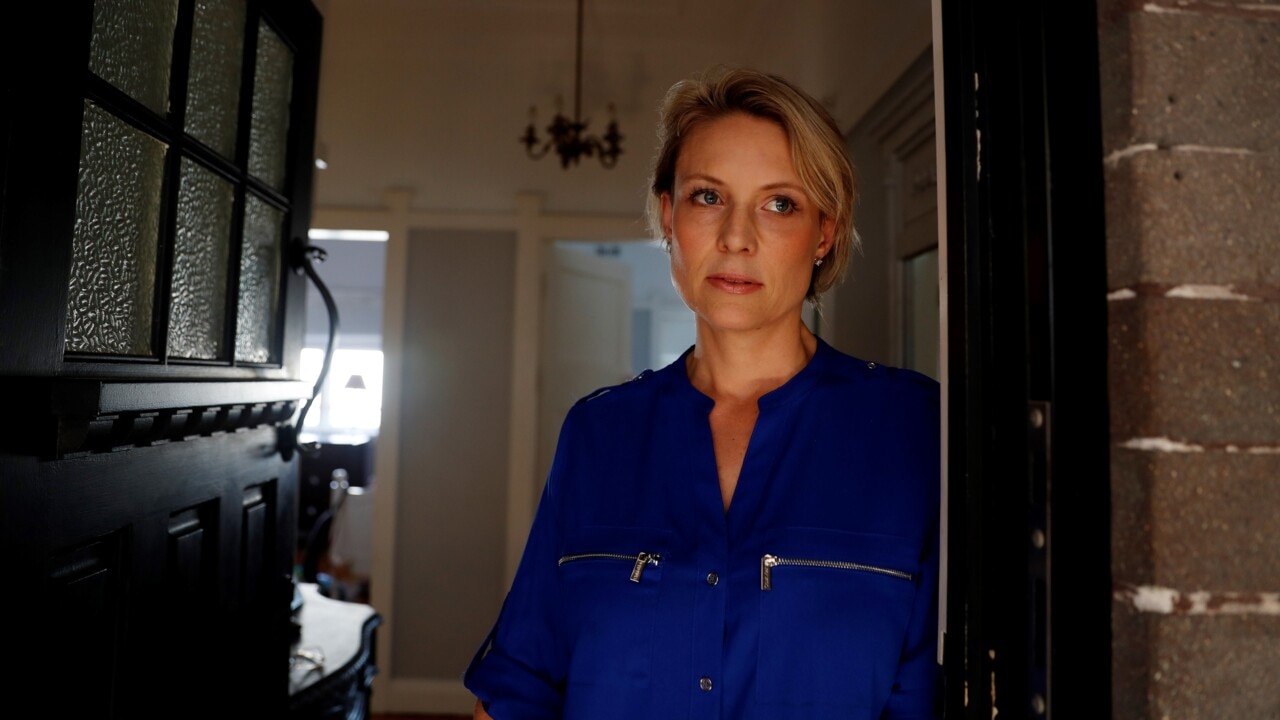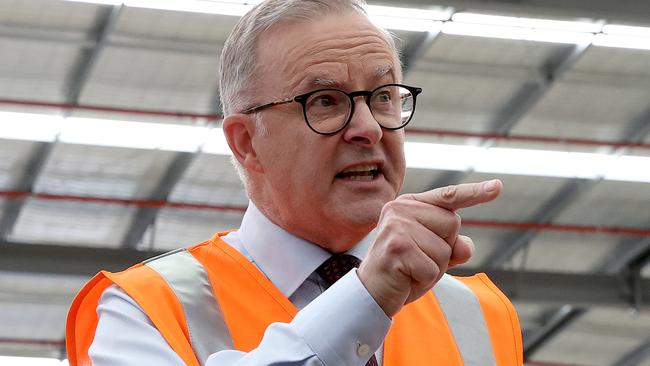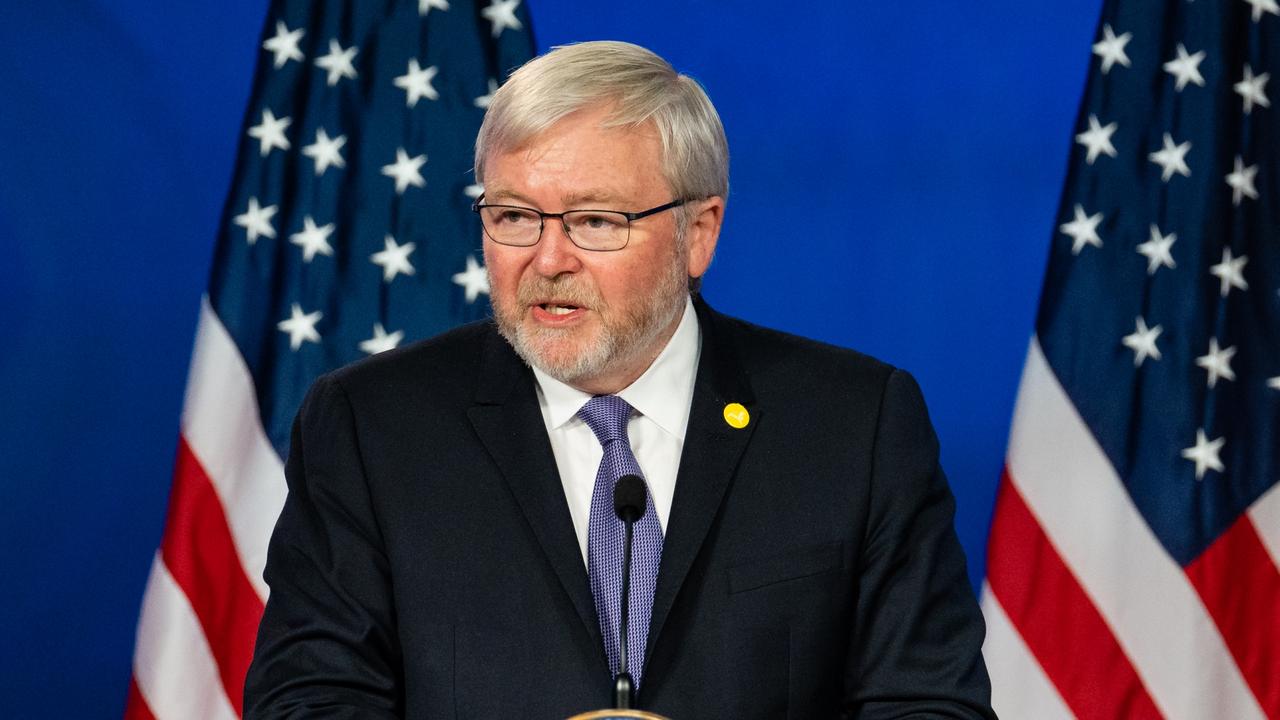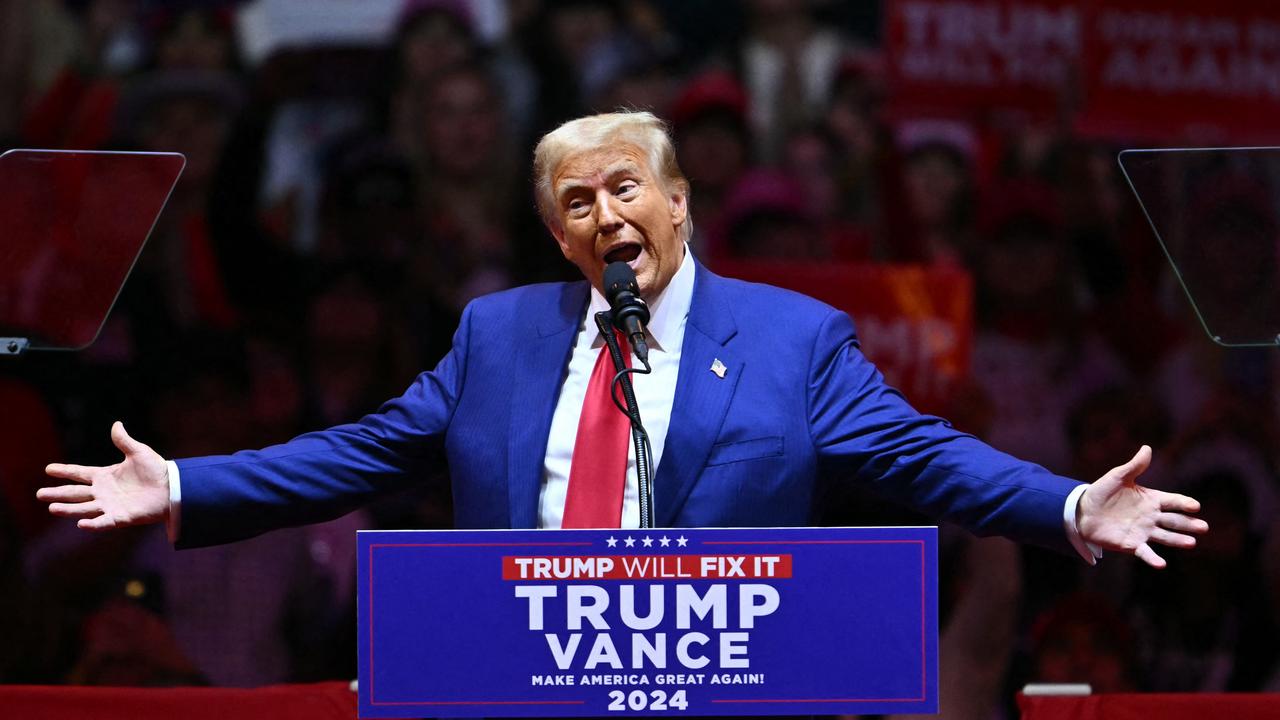Tom Minear: Anthony Albanese needs to seize control of the narrative and sell his vision
Labor cannot rely on Morrison just losing seats where voters are fed up with him – Albanese must convince Australia he will be a better leader. He hasn’t done that yet.

The strangest thing about Labor’s scare campaign on the cashless welfare card is they are attacking the Morrison government with a misleading fiction instead of damning facts.
The Coalition has given them plenty to work with. Broken promises on an integrity commission, religious discrimination laws and commuter carparks; billions of dollars spent on JobKeeper payments to profitable companies and submarines that were never built; the delayed vaccine rollout and the deadly aged care crisis.
Anthony Albanese wants the election to be a referendum on Scott Morrison, and yet the PM’s track record hasn’t stopped Labor dreaming up the claim that pensioners will have their payments quarantined on a debit card.
Labor backbenchers have been pushing this for months, even after Social Services Minister Anne Ruston declared: “The Morrison government will not force age pensioners on to the cashless debit card. We were never going to, and never will”.
This week, when Labor was busted sending pamphlets spruiking their claim, Albanese and Jim Chalmers doubled down. The opposition treasury spokesman said pensioners were “petrified” – undoubtedly because they had been duped by Labor.

So, what’s happening here? Labor is desperate to win back older voters scared away at the 2019 election by the opposition’s crackdown on franking credits, which Morrison mischievously branded a “retiree tax”. More generally, Labor is simply desperate to win.
While Albanese’s team plotted a positive start to the campaign built around new health policies, this was derailed by the Labor leader’s gaffes. After a week, the opposition telegraphed a shift to go all-out anti-Morrison.
Albanese reignited Labor’s 2016 Mediscare campaign, bolstered by Morrison’s nomination of Ruston as the government’s next health minister. Labor operatives couldn’t believe their luck as they mined Hansard for Ruston’s warnings about the financial sustainability of Medicare.
Prior to Wednesday’s debate, Labor rebooted its attack on the industrial relations laws Morrison abandoned a year ago, warning he was again “sharpening his knife to slash your pay and conditions”. Albanese also blasted the government’s handling of aged care in his most emphatic performance of the campaign so far.
The Labor leader looks more comfortable going negative. He waffles less and nails his lines, which makes sense given he had three years of practice as the government’s critic-in-chief.
At some point, however, Albanese has to look like a prime minister. And it’s not as though Morrison isn’t giving him that opportunity.
The government’s strategy is driven by opposition tactics, as it was in 2019. Day after day, the Coalition is setting the agenda by identifying and exploiting Labor’s weaknesses. This is variously brutal, sneaky and crass, but it feeds a desire for scrutiny on the opposition they had not encountered until now.

Albanese and his team were particularly aggrieved by government modelling of their energy policy, which the Herald Sun revealed on Tuesday suggested the average household power bill would be as much as $560 more expensive in a decade because of Labor’s promised $78bn transformation of the electricity transmission network.
“These are dodgy numbers from a dodgy minister in a dodgy government,” Chalmers thundered, having stepped up because energy spokesman Chris Bowen has Covid. (Labor suspects the government deliberately launched the attack when he was in isolation.)
It was a fiery rebuttal, although in focusing on the government’s numbers, Labor deliberately ignored valid criticisms raised by experts about the opposition’s policy.
For instance, the Grattan Institute’s Tony Wood said Labor’s $20bn offer of low-cost finance for poles and wires was “not a very good way to spend public funding”. He argued the next energy minister needed to transform how transmission upgrades were planned and paid for, a point echoed by former Energy Security Board chair Kerry Schott.
These works are crucial and inevitable to bring online renewables and decarbonise the grid; the key is delivering them in the most timely and cost-effective way.
These are the debates we should be having during an election, especially given concerns about the government’s handling of the issue. But rather than taking the opportunity to lead, Albanese scarcely talked about his detailed policy on the campaign trail until the Coalition put him on the defensive.
Morrison’s pitch isn’t about big new ideas. He is running on his record, warts and all, and the choice that offers between an experienced government and an untested opposition.
It is telling that the controversy over comments made by Liberal candidate Katherine Deves about transgender people isn’t viewed as a problem by Morrison. He prides himself on being a pragmatist so he would disendorse her if it was. Instead, the PM seems happy to use his hand-picked candidate to stoke a faux fight and distract from other issues.
Labor strategists rightly bristle at suggestions they have a small-target platform. It’s actually rather ambitious, but that means little unless Albanese uses it to set the election agenda.
Perhaps Chalmers, Tanya Plibersek and Richard Marles should be charged with leading the attack on Morrison, allowing Albanese to seize control of the narrative and sell his vision.
Morrison will likely lose seats where voters are fed up with him. But Labor cannot rely on that – Albanese must convince Australia he will be a better leader. He hasn’t done that yet.
Originally published as Tom Minear: Anthony Albanese needs to seize control of the narrative and sell his vision



